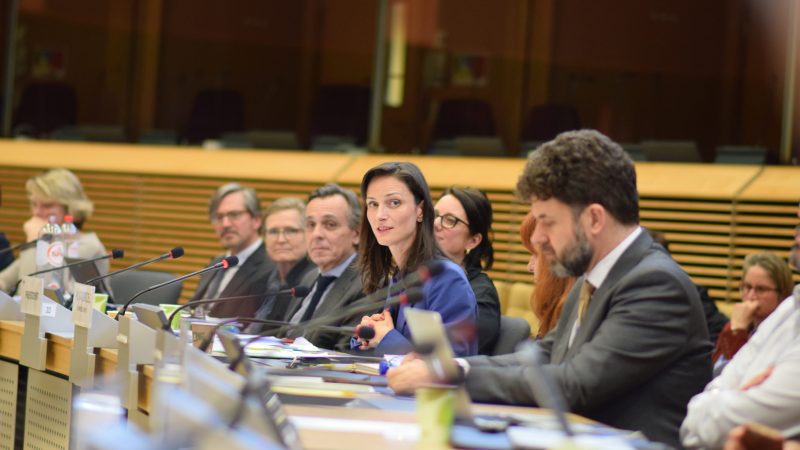 Sonia Livingstone, having recently returned from the Internet Governance Forum in Istanbul, reports on the panel she chaired on researching children’s rights in a global digital age.
Sonia Livingstone, having recently returned from the Internet Governance Forum in Istanbul, reports on the panel she chaired on researching children’s rights in a global digital age.
Policy makers rely on high quality research to underpin evidence-based governance decisions. But just how this evidence is to be obtained – the research agenda of key concepts and questions, the quality or ethical requirements for methods, the challenges of implementation, evaluation and interpretation – all of this is rarely discussed publicly between researchers and research users. Such matters are particularly important in relation to children’s rights in a global, digital age, with a host of associated practical, ethical and political issues attached. A recent report for UNICEF began to address some of these questions, as discussed in my launch lecture. A recent multinational seminar at the Berkman Center for Internet and Society took these forward.
At the Internet Governance Forum in Istanbul, I chaired a panel discussion among researchers and research users on exactly these questions.What kinds of conversation and collaboration do and should researchers establish in relation to stakeholders? Researchers have a responsibility to produce an independent, trustworthy evidence base to inform policy development. Research users are even more diverse than researchers – encompassing many stakeholder interests. Do they always look for a robust evidence base and what standards do they apply? There may also be concerns about how research is used in promoting particular policies. So, how can we promote the dialogue between researchers and stakeholders on the kinds of evidence needed for policy making and the uses to which it is put? These questions are particularly pressing as evidence-based policy recommendations developed in Europe and other parts of the global North are adopted, adapted or contested in the global South.
During this debate at IGF, some key points were made by speakers, participants and youth representatives:
- The internet keeps changing so research should be continually updated, ideally with benchmarking findings and then longitudinal updates. Many researchers internationally are looking at the framework and methods of the EU Kids Online research as having value in guiding their own research. But in many parts of the world, there are major challenges in terms of the digital divide (with costly implications for recruitment and sampling) and of parental knowledge of the internet (often lacking).
- There is a real tension between wanting to have standardised measures (to produce comparative findings, even the cross-national rankings that media and governments like) and contextualised research (so that the research derives from and speaks to the particular contexts of inquiry).
- Children’s rights are universal, and yet research must be interpreted and used in context. Understanding and researching children’s rights involves realising that rights are inter-linked, indivisible, and complexly translated to the online environment. Research on sensitive matters can put young people at risk (e.g. from the reactions of parents/schools) unless data is truly anonymous, and anonymity is difficult in the digital age. A similar argument can be made in relation to encourage youth participation – encouraging participation rights can lead youth into trouble in relation to certain governments.
- There is a huge need for capacity building in the global South especially in terms of training researchers and being informed in the use of research findings. There is also a great desire for networking and decentralised/local capacity building especially in the South though also internationally.
- There are challenges for researchers in publishing findings that may not accord with the expectations of the public or government, or which may be misunderstood or misused. Research is valued for its independence but often researchers must work closely with stakeholders to ensure their findings are not misinterpreted. And when they see rights being undermined they may also become active civically or politically.
- New possibilities can be considered for the use of youth as researchers as well as researched, so as to gain more honest answers on sensitive topics. The young people wanted research findings accessible to and understandable by them. Researchers should write child-friendly versions of their studies.
The discussion concluded that this was just the beginning of a lively conversation between researchers and research users on the important question of children’s rights globally in the digital age. The hope is to improve mutual understanding, better connections and possibilities for collaboration. Ideally, in the future, there would be a balance between (i) a coordinated effort to create a clearing house or observatory for research projects, reports and methodologies, to share resources, encourage best practice and build capacity, and (ii) a decentralised effort that recognises diversity, particular needs and interests around the world without imposing the vision of any one part of it (especially the global North). How all this can be taken forward depends on the interests of many participants, so the conversation will be continued – including at next year’s IGF.
This article gives the views of the author and does not represent the position of the LSE Media Policy Project blog, nor of the London School of Economics.





